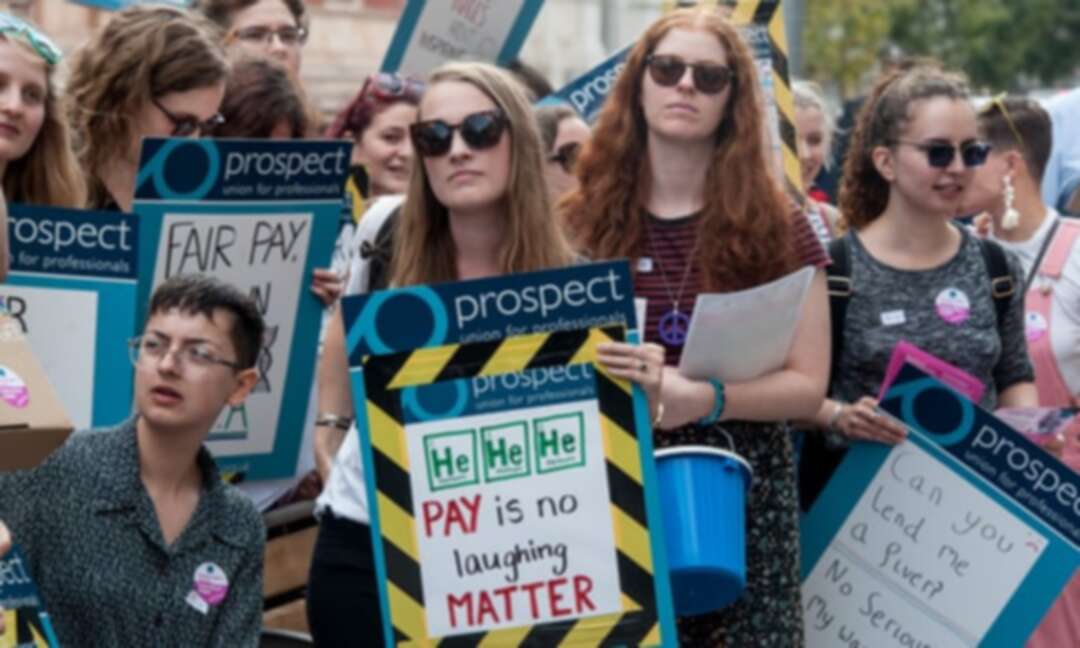-
U-turn on public sector payment cap ‘will benefit millions’

Unions say ‘perverse’ government rules on maximum payouts would have hit low-paid workers hardest
Millions of workers will benefit from a government decision to withdraw regulations aimed at preventing excessive payments in the public sector, according to unions.
A government U-turn means “perverse” regulations that would have hit low-paid workers the hardest will now be revoked, said unions. They said the rules, aimed at preventing excessive payments to the highest earners, would have affected long-serving local government workers who earned just £23,500 and were made redundant.
Unison’s general secretary, Christina McAnea, said: “It’s great the government has finally seen sense and stepped back from this damaging regulation that threatened to blight the retirement of millions of workers.
Through no fault of their own, long-serving staff over the age of 55 and facing redundancy would have been hit by the regulation. Because they’re obliged to take their pensions if they lose their jobs, when combined with redundancy payments the final amount could have exceeded the £95,000 cap.
“All along the Treasury was told that the regulations were flawed, and they would hit ordinary workers. Unfortunately, ministers wouldn’t listen, so Unison had to take them to court.
“The government has wasted much time and money and should now abandon any plans to reintroduce the regulations.
“Instead, ministers should concentrate on supporting dedicated public service workers who are delivering for their communities in the most challenging of circumstances.”
Garry Graham, the deputy general secretary of Prospect, said: “Our robust legal challenge has been successful. Despite initially contesting our legal case to go to judicial review, the government has now thrown in its hand. They have also conceded anyone the cap has been applied to so far should be compensated.
“We said at the time we believed the government’s approach was both unlawful and chaotic and have been proven right.”
Rehana Azam, a GMB national officer, said it was a “victory for millions of public sector workers, but once again it proves that this government is not on the side of our invaluable public sector workers who have put themselves in harm’s way throughout the pandemic.
“At a time when we should be protecting our public sector workforce, the government has been hell-bent in attacking their hard-fought terms and conditions.
“GMB will be working hard to assist members who were affected by this unjust cap and will stand vigilant against any attempt to reintroduce these cruel and flawed plans.”
A Treasury statement said: “In line with the government’s long-term commitment to ensure that public sector exit payments are fair and proportionate to employers, employees and taxpayers, the Restriction of Public Sector Exit Payments Regulations 2020 came into force on 4 November 2020.
“The legislation set a £95,000 cap on exit payments for public sector authorities and offices listed in the schedule.
“After extensive review of the application of the cap, the government has concluded that the cap may have had unintended consequences and the regulations should be revoked.
“HMT
The Unite assistant general secretary Howard Beckett said: “We warmly welcome this decision by the government to jettison the £95,000 cap that would have adversely affected dedicated long-serving public servants earning relatively low salaries of £25,000 a year.
“A potential injustice that would have dramatically lowered morale in the workforce has been averted and Unite is pleased to have played its part in achieving this victory.”
source: Smallman
Levant
You May Also Like
Popular Posts
Caricature
BENEFIT Sponsors BuildHer...
- April 23, 2025
BENEFIT, the Kingdom’s innovator and leading company in Fintech and electronic financial transactions service, has sponsored the BuildHer CityHack 2025 Hackathon, a two-day event spearheaded by the College of Engineering and Technology at the Royal University for Women (RUW).
Aimed at secondary school students, the event brought together a distinguished group of academic professionals and technology experts to mentor and inspire young participants.
More than 100 high school students from across the Kingdom of Bahrain took part in the hackathon, which featured an intensive programme of training workshops and hands-on sessions. These activities were tailored to enhance participants’ critical thinking, collaborative problem-solving, and team-building capabilities, while also encouraging the development of practical and sustainable solutions to contemporary challenges using modern technological tools.
BENEFIT’s Chief Executive Mr. Abdulwahed AlJanahi, commented: “Our support for this educational hackathon reflects our long-term strategic vision to nurture the talents of emerging national youth and empower the next generation of accomplished female leaders in technology. By fostering creativity and innovation, we aim to contribute meaningfully to Bahrain’s comprehensive development goals and align with the aspirations outlined in the Kingdom’s Vision 2030—an ambition in which BENEFIT plays a central role.”
Professor Riyadh Yousif Hamzah, President of the Royal University for Women, commented: “This initiative reflects our commitment to advancing women in STEM fields. We're cultivating a generation of creative, solution-driven female leaders who will drive national development. Our partnership with BENEFIT exemplifies the powerful synergy between academia and private sector in supporting educational innovation.”
Hanan Abdulla Hasan, Senior Manager, PR & Communication at BENEFIT, said: “We are honoured to collaborate with RUW in supporting this remarkable technology-focused event. It highlights our commitment to social responsibility, and our ongoing efforts to enhance the digital and innovation capabilities of young Bahraini women and foster their ability to harness technological tools in the service of a smarter, more sustainable future.”
For his part, Dr. Humam ElAgha, Acting Dean of the College of Engineering and Technology at the University, said: “BuildHer CityHack 2025 embodies our hands-on approach to education. By tackling real-world problems through creative thinking and sustainable solutions, we're preparing women to thrive in the knowledge economy – a cornerstone of the University's vision.”
opinion
Report
ads
Newsletter
Subscribe to our mailing list to get the new updates!






















